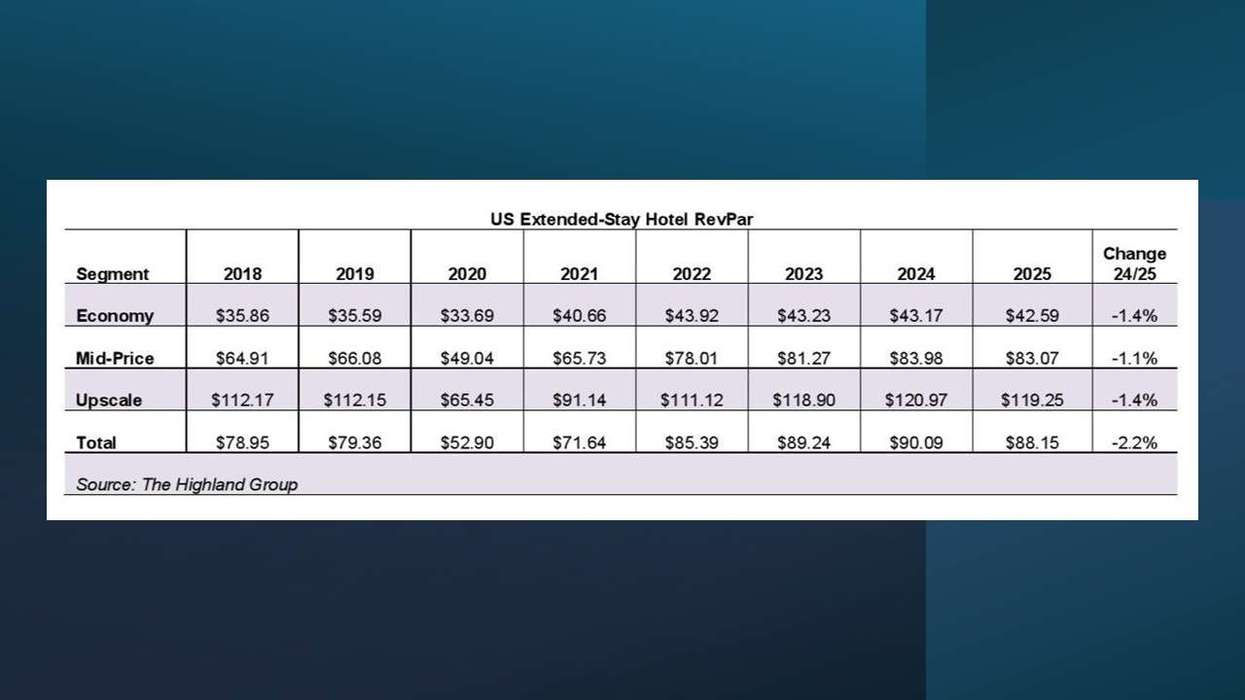U.S. REVPAR IS expected to grow by 1.2 percent this year, down from the previously forecasted 2 percent, according to CBRE. Despite lower full-year projections, second-half growth is set to improve, with a 2 percent increase compared to 0.5 percent in the first half.
CBRE’s 2024 Global Midyear Hotels Outlook attributes these second-half growth projections to election-related events in the U.S., easier year-over-year comparisons, rising inbound international visitors, anticipated interest rate cuts, and a slight uptick in group and business travel.
In the first half of 2024, RevPAR in 57 of the 65 U.S. markets tracked by CBRE returned to pre-pandemic levels. Most of the eight markets still lagging are in Northern California and the Upper Midwest. Major East Coast markets, including New York, Boston, Washington D.C., Atlanta and Miami, have surpassed 2019 levels.
Although CBRE anticipated a slowdown, growth has been more modest than expected, despite a resilient economy. Challenges such as record outbound international travel, weaker consumer demand, and increased competition from short-term rentals, cruise lines and other alternatives have offset the recovery in inbound travel and the modest rise in group and business travel.
U.S. outlook
The largest reduction in full-year RevPAR growth is for resort locations, now projected to see flat growth compared to the previously forecasted 1.6 percent increase. While leisure travel demand remains, more Americans are vacationing in Europe, Central America and Latin America, increasingly opting for cruise lines and short-term rentals, which erode traditional hotels' market share.
CBRE's baseline forecast for 2024 predicts GDP growth of 2.6 percent and average inflation of 2.9 percent. Following stronger-than-expected GDP growth in the second quarter, CBRE anticipates a slowdown in the second half of the year and into 2025. Softening consumer spending and increased competition from lodging alternatives will reduce hotel demand.
Due to high construction and financing costs, CBRE expects modest hotel supply growth of under 1 percent over the next three years. Rising global wealth and limited supply growth are projected to support strong hotel fundamentals in the long term.
RevPAR is projected to grow at a compound annual growth rate of 2.5 percent over the next five years, barring a recession or external shocks to the global economy. Urban hotels are expected to outperform, with a RevPAR CAGR of 3.5 percent, as they have been the slowest to recover and will benefit most from increased inbound international travel.
In August, CBRE lowered its U.S. hotel forecast, projecting a 1.2 percent RevPAR increase for 2024, down from the 2 percent estimated in May. The research group anticipates 2 percent RevPAR growth in the second half of 2024, up from 0.5 percent in the first half, driven by international tourism and election-related events.
Global markets
The outlook for Northern Latin America, including Colombia, Costa Rica, and Mexico, remains strong, with occupancy in Costa Rica projected to exceed its 2019 level of 67 percent. Colombia's hospitality sector is expected to attract more than 6 million tourists this year, driven by an improving economy, lower inflation, interest rate cuts, and government initiatives. Tourism in Mexico will also remain robust, attracting foreign investors and bolstering the country’s position as a leading global tourism market.
Europe’s hotel and tourism sectors are poised for continued expansion, though at a more modest pace than in recent years. CBRE projects healthy growth for key European gateway cities, driven by an increase in inbound international travelers and corporate travel.
Luxury and resort locations are expected to outperform other segments, reflecting high-income travelers' preference for personalized experiences and diminished macroeconomic headwinds. However, following strong gains in 2023, RevPAR growth is projected to decelerate to around 5 percent this year, primarily due to weakening U.S. demand.
CBRE’s outlook for the Middle East remains positive, supported by robust growth in the first half of the year. During this period, hotel operational performance improved in nearly all major cities in the Gulf Cooperation Council. Tourism-related megaprojects were announced in Saudi Arabia, and regulatory changes in the U.A.E. are expected to boost the hospitality sector.
In the Asia Pacific region, all hotel markets, except the Maldives, experienced year-over-year increases in RevPAR in the first half of the year. Despite challenges such as staffing issues and aircraft shortages, the region has seen significant growth in airline travel this year.






